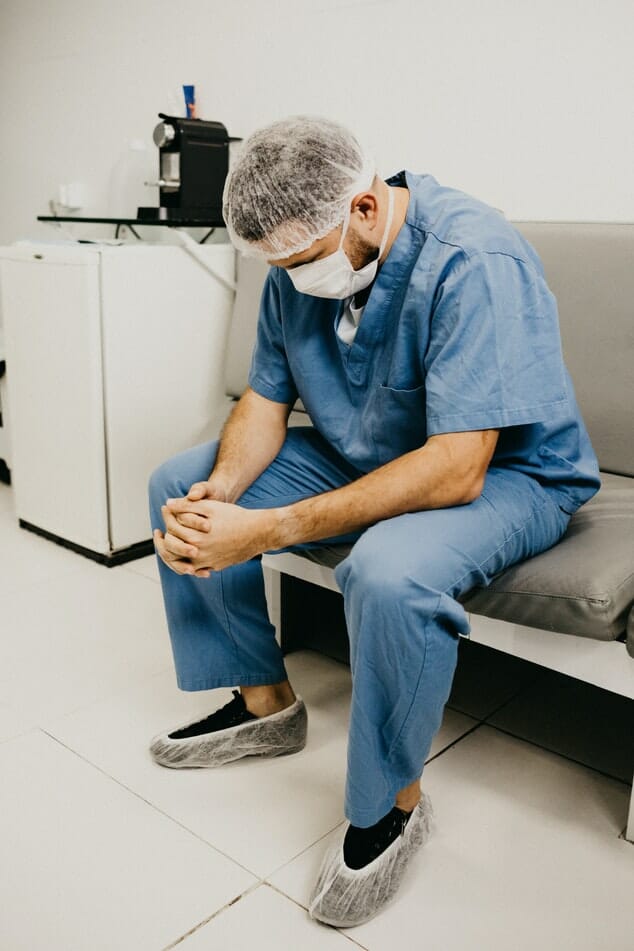It has not been a good year for the NHS. Not just because a once in a lifetime pandemic has exposed gaping holes caused by years of under-funding. There have also been several shocking instances of apparent NHS cover-ups.
A landmark year
2020 saw the first ever prosecution for breaching the Duty of Candour. The Duty of Candour is a legal obligation to be open and honest with patients, and their families, if something goes wrong and it causes, or could cause, significant harm.
In September, the University Hospitals Plymouth Trust pleaded guilty to the allegation that they failed to tell 91 year old Elise Woodfield’s family that her death might have been as a result of an injury they caused during an endoscopy procedure, in December 2017.
Not the first
Although this was the first prosecution for breaching the Duty of Candour, it wasn’t the first time that the NHS made headlines for a lack of transparency, this year.
In July, a review focusing on Primodos, sodium valproate and surgical mesh found system-wide failings. Baroness Julia Cumberlege describing it as “disjointed, siloed, unresponsive and defensive”.
A section of the report looked at the Duty of Candour, concluding that it is not “entirely effective”. Although there has been improvement in recent years, it said, there is still a long way to go. The report also said that “Many patients… felt that clinicians have been reluctant to admit to any mistakes”.
The disconnect that Baronness Cumberlege identifies is evident in the report itself. In one paragraph, NHS resolution (who deal with claims against NHS Trusts) are quoted as saying; “there has been a move away from a blame culture towards a more open culture in the NHS, where mistakes are more readily admitted, reported and discussed without fear of reprisal”. In the same paragraph someone who works for the NHS goes on to say “there’s not an open forum for mistakes or errors or things going wrong. There’s too much blame for individual clinicians and surgeons”.
Such a disconnect between the two parties most capable of inciting change is disappointing.
Not the last
Sadly, the landmark Duty of Candour prosecution was not the last we heard about the NHS being less than open.
It was recently reported that Great Ormond Street hospital denied responsibility for the death of a five year old boy, in a medical negligence claim. Despite admitting negligence, they denied responsibility for causing his death. But, just months after agreeing an out-of-court settlement with the boy’s family, the hospital told The Independent that an expert who reviewed the case before the settlement, thought that their actions contributed towards the death.
As medical negligence solicitors we help a lot of people who come to us looking for answers. Cases like this highlight how the current system can fail them; it does not always get them the answers they deserve answers. The NHS cannot just point to a broken system though. It shouldn’t rely on systems, processes and laws to be honest with victims. It’s not unreasonable to expect transparency and integrity in all interactions, from an institution founded on helping people. Even if the system isn’t perfect.
As Baroness Cumberlege said in her letter to the Secretary of State, the phrase ‘first do no harm’ “should serve as a guiding principle, and the starting point, not only for doctors but for all the other component parts of our healthcare system”.
We know that healthcare professionals embark on their career for one main reason; to help people. But surely the principle to ‘do no harm’ should extend beyond the frontline, to the communication people receive when something has gone wrong.
A culture problem
Recently, in a report into the maternity services at Nottingham University Hospitals Trust, the CQC said “the service did not have an open culture where staff felt confident raising concerns without fear”.
These comments followed a number of unannounced inspections, after the coroner investigating the death of Wynter Rider described an “unsafe culture” at the maternity unit.
It follows that staff who are scared to raise concerns, must be terrified of admitting they’ve made a mistake. But they shouldn’t be. Making mistakes is part of being human – we all make them.
Clearly, every effort should be made to avoid them; especially when it’s patients’ health on the line. But once they have happened, it is imperative that staff can be open and honest. There is nothing to gain from sweeping it under the carpet. In fact, quite the opposite. Not only because the victim deserves the truth, but speaking candidly about what went wrong, could save others from a similar fate.
Blame-based litigation
The Independent Medicines and Medical Devices Safety Review describes litigation as “blame-based”. They are also critical of its focus on the actions of individual doctors.
This is interesting because it shouldn’t feel this way. Medical negligence claims are about the victim. They’re about putting them back in the position they would have been, if they had not been injured by negligence.
Whilst it’s easy to see how someone facing allegations of negligence could feel like the process is about them, it’s not actually the case. There are plenty of measures in place which should protect healthcare professionals from feeling victimised; legal representation, insurance and professional support, to name a few. But investigations are an essential part of the process; they are indispensable. They help to protect against fraud and give the accused the chance to share their story. Removing the person who made the mistake certainly would inhibit this.
Regardless of whether it’s correct, their view, that litigation is “blame-based” might explain a lot about the lack of transparency. A healthcare professional who incorrectly feels like they are at the centre of a claim is more likely to forget who the claim is really about. And in forgetting who the claim is really about, it’s easy to see how defensive reputation management can overcome making amends with the victim.
It seems that our healthcare system needs a culture change. The legal system is often seen as the enemy, but if used correctly it can work with healthcare providers to secure patient safety in the future. If we can turn our misconceptions around, we can create an open and honest culture designed to protect the patient, rather than an individual’s reputation.





